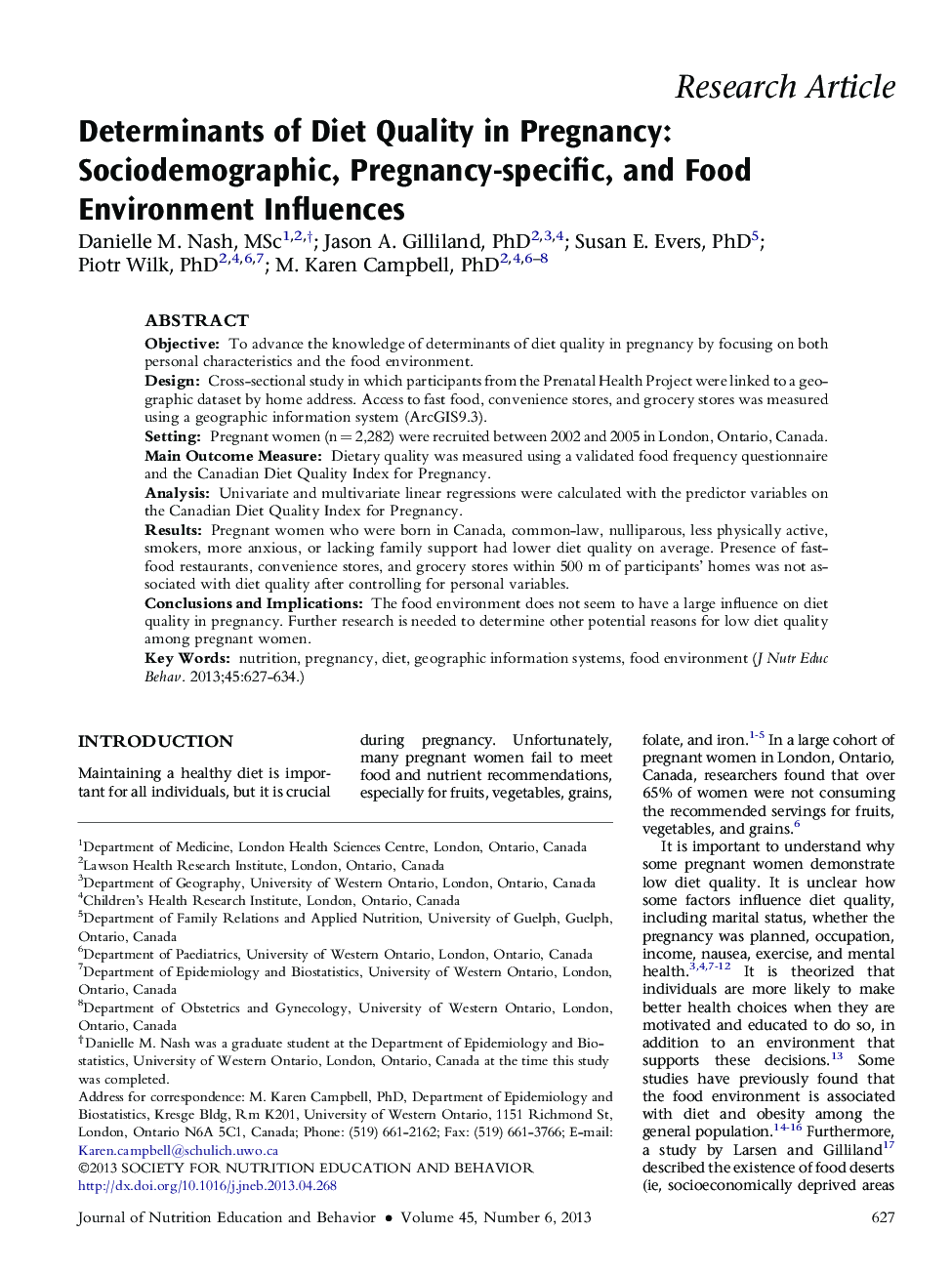| Article ID | Journal | Published Year | Pages | File Type |
|---|---|---|---|---|
| 362008 | Journal of Nutrition Education and Behavior | 2013 | 8 Pages |
ObjectiveTo advance the knowledge of determinants of diet quality in pregnancy by focusing on both personal characteristics and the food environment.DesignCross-sectional study in which participants from the Prenatal Health Project were linked to a geographic dataset by home address. Access to fast food, convenience stores, and grocery stores was measured using a geographic information system (ArcGIS9.3).SettingPregnant women (n = 2,282) were recruited between 2002 and 2005 in London, Ontario, Canada.Main Outcome MeasureDietary quality was measured using a validated food frequency questionnaire and the Canadian Diet Quality Index for Pregnancy.AnalysisUnivariate and multivariate linear regressions were calculated with the predictor variables on the Canadian Diet Quality Index for Pregnancy.ResultsPregnant women who were born in Canada, common-law, nulliparous, less physically active, smokers, more anxious, or lacking family support had lower diet quality on average. Presence of fast-food restaurants, convenience stores, and grocery stores within 500 m of participants’ homes was not associated with diet quality after controlling for personal variables.Conclusions and ImplicationsThe food environment does not seem to have a large influence on diet quality in pregnancy. Further research is needed to determine other potential reasons for low diet quality among pregnant women.
